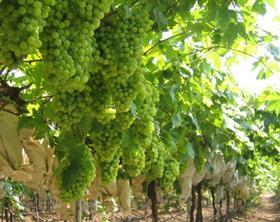
India’s Agricultural and Processed Food Products Development Authority (APEDA) is investing in new technology to monitor agro-chemical residues on table grapes and tightening up its traceability systems following the detection of excess levels of growth regulator Chlormequat Chloride Component (CCC) on fruit from that country in Europe last year.
To address concerns in European markets about the safety of Indian table grapes APEDA, in conjunction with stakeholders, has revised its Residue Monitoring Plan (RMP) to increase the list of agro-chemicals it monitors from 98 to 167.
In addition to monitoring pesticides, APEDA will also now test for other agro-chemicals such as growth hormone regulators. These were previously not included under its agro-chemical residue testing systems, which helps to explain why the detection of CCC residues led to some shipments being halted in Europe last year.
APEDA has also earmarked US$763,000 for the National Research Centre for Grapes to purchase new monitoring instruments. A further US$2.2m will be made available to APEDA-recognised laboratories for the purchase of equipment. APEDA will bolster the funding for new equipment with training programmes for the laboratories, with some 25 analysts from 13-14 laboratories scheduled to visit Wageningen University in the Netherlands for training in June.
The country’s upgrade of the RMP will run in conjunction with its web-based software system called GrapeNet, which provides traceability for all grape exports to EU countries.
APEDA plans to lead an industry delegation comprising exporters and referral laboratories to key European cities, such as London, Rotterdam, Hamburg and Brussels, next month (December) to announce its new measures to industry and government parties.
India’s table grape exports have seen impressive growth over the past few years, rising by 35 per cent from 96,960 tonnes in the 2007/08 season to hit 131,151 tonnes worth an estimated US$120m in 2009/10. Shipments to the EU have increased from 39,180 tonnes in 2007/08 to 51,670 tonnes during that period.
A full interview with APEDA director S Dave on the agency’s response to the CCC episode will appear in the January 2011 edition of Eurofruit Magazine.



